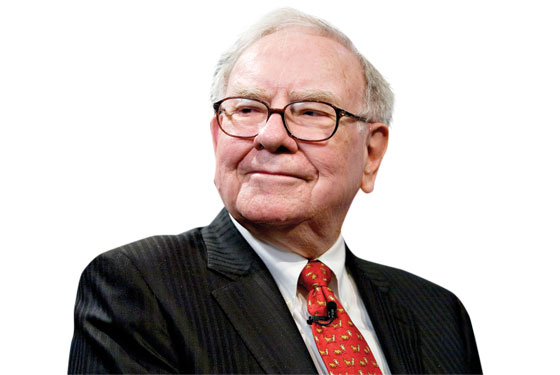
As financial reform stumbles across the finish line in Washington, D.C., we can only hope that it will have some real, lasting effect—that it will somehow make those greedy investment bankers act a little more responsibly when they’re gambling with the global economy. As responsible and principled, say, as Warren Buffett, with his folksy, timeworn approach to putting money to work.
We might hope for that, but we might not want to. While the soon-to-be octogenarian still cracks a corny joke or two while running Berkshire Hathaway, out of far-off, unsullied Omaha, he’s a citizen of Wall Street at heart. In some ways, he might be even more extreme, because his outsize reputation means he often gets a free pass on behavior that others get called out on.
Consider Buffett’s $5 billion investment in Goldman Sachs in September 2008. On the surface, it made a lot of sense. First, the news of such an investment could help put an end to the post-Lehman carnage on Wall Street. It did. And second, he had the storied firm over a barrel, extracting a juicy 10 percent coupon on the preferred shares they created for him in their moment of need.
He’d made this play before: He invested in Salomon Brothers in 1987 when the firm was on the run from Ron Perelman (things later got so hairy that Buffett had to step in and run the Salomon temporarily, an experience he termed “far from fun”). But with Goldman, it’s pretty clear who got the better of whom. Buffett got his 10 percent, sure. But Goldman rented the credibility of the world’s most reputable investor for a relative song—what’s $500 million a year in exchange for one’s continued existence? He even defended of the firm’s practices earlier last month, when the Goldman pile-on was in full force. (Perhaps it was mere respect. They got him; therefore they must be good. If you can dunk on LeBron …) But let’s not get too complicated. Untie it all, and it’s pretty simple: As one of Goldman’s largest investors, Buffett is, de facto, Goldman.
The Wall Street Journal reported on April 26 that Buffett was lobbying Nebraska senator Ben Nelson to grandfather Berkshire and its $63 billion derivatives portfolio from any new rules, specifically those that might force the company to reserve collateral to cover potential losses. Recall that this is the guy who called derivatives “financial weapons of mass destruction.” But they’re only dangerous, apparently, in lesser people’s hands. (The great Buffett? Posting collateral? How dare they.) Some of Buffett’s derivatives positions are outright bets on the direction of the market, the kind that can suddenly be worth nothing if he’s wrong. In other words, gambling. With shareholder money. Now where have we heard of that before?
Perhaps most damning to his cultivated image of being above it all is the fact that until last year, Berkshire Hathaway was the largest shareholder of rating agency Moody’s Investors Service, with a full 20 percent stake. It’s hard to think of any market participant that fell down harder on the job during the late housing bubble than the rating agencies, all in pursuit of the growing stream of fees from investment banks demanding that they put lipstick on their subprime pigs. Moody’s surpassed $73 a share in early 2007; it’s around $21 now. And yet, Buffett’s reputation took no similar hit.
The question is if it should have. Look beyond Buffett’s old-timey outsider shtick, the circus of an annual meeting, the notion that all he does is drink Cherry Coke and play online bridge with Bill Gates, and he’s just another Wall Streeter. Like any rational being, Buffett went where the money was (Moody’s), bought on the cheap (Goldman), and tried to protect his own interests (lobbying against derivatives reform.) Just like the rest of them. Only he’s better at it than they are.
Have good intel? Send tips to intel@nymag.com.